Low sperm count, medically known as oligospermia, is a condition that affects a significant number of men and can profoundly impact fertility and reproductive health. This comprehensive article delves into the key factors contributing to low sperm quality, its symptoms, potential causes, and available treatment options. We’ll address common questions like whether masturbation and Low sperm count symptoms, cause low sperm count and explore the tradeoffs and challenges associated with various approaches to overcoming this condition. Let’s begin by understanding how it can affect male fertility.
What is Low Sperm Count?
Low sperm count refers to a condition in which the semen ejaculated during ejaculation contains fewer sperm cells than average. It’s a crucial factor in male fertility as it directly influences the chances of fertilizing an egg. A low sperm count can significantly reduce the likelihood of conception, making it an issue of concern for couples trying to conceive.
Signs and Symptoms of Low Sperm Count
The signs and symptoms of low sperm count might not be readily apparent, as the condition doesn’t necessarily manifest with obvious physical cues. Some potential signs that could indicate this issue include:
- Difficulty Conceiving: Couples struggling to achieve pregnancy after a year of unprotected intercourse may suspect low sperm count as a possible cause.
- Reduced Sexual Desire: Low sperm count could be accompanied by decreased libido or sexual desire.
- Erectile Dysfunction: While not a direct symptom, erectile dysfunction might coexist with low sperm count.
- Common Causes of Low Sperm Count
- Understanding the root causes of low sperm is crucial for determining appropriate treatment approaches. Several factors can contribute to this condition, including:
- Medical Conditions: Conditions such as varicocele (enlarged veins in the testicles), infections, hormonal imbalances, and genetic disorders can impact sperm production.
- Lifestyle Factors: Excessive alcohol consumption, smoking, drug use, and obesity can adversely affect.
- Environmental Factors: Exposure to toxins, radiation, and excessive heat can hinder sperm production.
- Medications: Certain medications, such as anabolic steroids and chemotherapy drugs, can impact sperm production temporarily or permanently.
Debunking Myths: Does Masturbation Cause Low Sperm Count?
One common myth is that frequent masturbation leads to low sperm motility. However, this notion is largely unfounded. Regular masturbation doesn’t typically cause a significant decrease in sperm. Ejaculating frequently can help eliminate older sperm, making room for newer, healthier sperm. It’s essential to distinguish between regular sexual activity and underlying medical conditions that might contribute to low sperm motility.
Treatment Options for Low Sperm Count
The treatment for this problem varies based on its underlying cause. Some potential treatment options include:
- Lifestyle Changes: Adopting a healthier lifestyle by maintaining a balanced diet, exercising regularly, reducing stress, and avoiding harmful habits can positively impact sperm production.
- Medical Interventions: Medical treatments like hormonal therapy, antibiotics to treat infections, and surgery to correct anatomical abnormalities might be recommended by a healthcare professional.
- Assisted Reproductive Techniques: In vitro fertilization (IVF) and intracytoplasmic sperm injection (ICSI) are advanced methods that help couples conceive when low sperm count is a concern.
The Importance of Seeking Professional Guidance
If you suspect you have a low sperm count or are facing challenges in conceiving, it’s crucial to consult a medical professional. A doctor can conduct thorough assessments to determine the underlying cause and recommend appropriate treatments tailored to your situation.
Challenges and Considerations in Overcoming Low Sperm Count
Balancing the various factors in addressing low sperm count can present challenges and considerations for individuals and couples seeking to overcome this condition.
- Emotional Impact: Dealing with fertility issues can emotionally toll individuals and couples. The stress and anxiety of trying to conceive can further exacerbate the situation. Seeking emotional support through counselling or support groups can help navigate these challenges.
- Treatment Tradeoffs: Different treatment options come with their tradeoffs. For example, while assisted reproductive techniques like IVF treatment can be effective, they might also involve invasive procedures and higher costs. Choosing the right treatment path requires weighing the benefits against potential downsides.
- Time and Patience: Achieving positive results might take time. Some treatments, such as lifestyle changes, might require patience as improvements in sperm might not be immediate. It’s essential to manage expectations and maintain a realistic outlook.
- Partner Involvement: Low sperm motility is a shared concern for couples. Open communication and involving both partners in discussions about treatment decisions and emotional support are essential for maintaining a solid partnership.
The Importance of Early Intervention
Early intervention is critical in addressing this issue. If you suspect fertility issues, seeking professional medical advice promptly can lead to timely diagnosis and appropriate treatment. Ignoring signs or delaying medical consultation might hinder the effectiveness of interventions, particularly when underlying medical conditions are the cause.
Understanding the Impact of Lifestyle Factors
Several lifestyle factors can contribute to low sperm count. These factors are often within an individual’s control, making lifestyle adjustments a potential solution for improving sperm count.
1. Diet and Nutrition: A balanced diet is crucial to sperm production and overall reproductive health. Nutrients like zinc, folate, vitamin C, and antioxidants are essential for sperm development. A diet rich in fruits, vegetables, whole grains, lean proteins, and healthy fats can positively impact sperm.
2. Physical Activity: Regular exercise is linked to improved sperm quality and count. Moderate exercise can help maintain a healthy weight, regulate hormone levels, and enhance overall reproductive function. However, excessive exercise or intense training might have the opposite effect, so striking the right balance is essential.
3. Stress Management: Chronic stress can negatively affect hormonal balance and reproductive health. Stress reduction techniques such as mindfulness, meditation, yoga, and adequate sleep can contribute to maintaining healthy sperm production.
4. Avoiding Harmful Substances: Substance abuse, including alcohol and recreational drugs, can impair sperm production. Smoking tobacco is also associated with reduced sperm count and motility. Quitting these habits can significantly improve overall sperm health.
5. Environmental Factors: Exposure to environmental toxins and pollutants, such as pesticides, heavy metals, and endocrine-disrupting chemicals, can impact sperm production. Minimizing exposure to such substances can help protect sperm health.
6. Sexual Habits: While some myths suggest that frequent masturbation leads to low sperm count, no scientific evidence supports this claim. Regular ejaculation through sexual activity or masturbation might help maintain sperm health by preventing the accumulation of older, less viable sperm.
Balancing Medical Interventions
For cases where lifestyle changes do not lead to significant improvements in sperm count, medical interventions can be considered. It’s important to note that the appropriate treatment depends on the underlying cause of low sperm count, which may involve medical conditions, hormonal imbalances, or genetic factors.
1. Medications: In some cases, hormonal imbalances can contribute to low sperm count. Hormone replacement therapy or medications can help restore hormonal equilibrium and improve sperm production.
2. Assisted Reproductive Techniques (ART): For individuals with severely low sperm count, ART procedures such as In Vitro Fertilization (IVF) or Intracytoplasmic Sperm Injection (ICSI treatment) may be recommended. These techniques involve fertilizing eggs with selected sperm in a controlled laboratory environment before transferring embryos to the uterus.
3. Surgery: Surgical interventions may be necessary in cases where blockages or abnormalities in the reproductive tract are causing low sperm count. Surgical procedures can correct these issues and potentially improve sperm production.
4. Lifestyle and Psychological Support: Medical interventions can be physically and emotionally demanding. Seeking support from healthcare professionals, counselors, and support groups can help individuals and couples navigate the challenges associated with fertility treatments.
5. Considering Overall Well-being: While addressing low sperm count is a priority, it’s essential to consider the overall well-being of individuals and couples. Balancing the pursuit of fertility treatments with maintaining a healthy relationship and emotional well-being is crucial.
Low sperm count is a complex issue with various potential causes and solutions. A holistic approach that combines lifestyle adjustments, medical interventions, and emotional support can yield the best results. Every individual’s situation is unique, and seeking guidance from qualified medical professionals, such as those at Nimaaya Ahmedabad, is essential for making informed decisions about treatment options and achieving the goal of building a family.




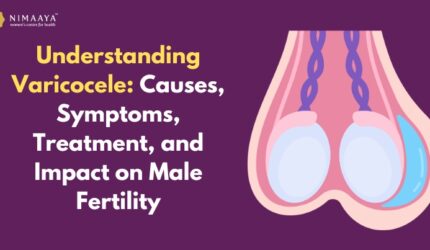
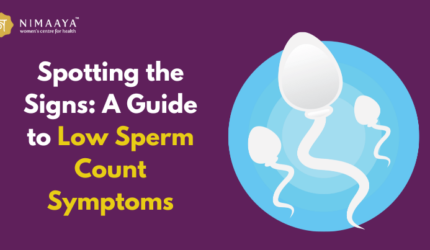



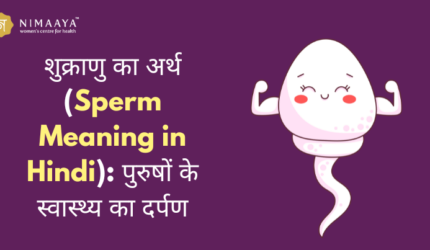
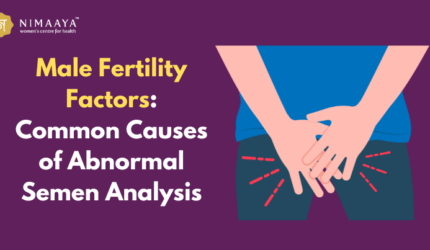
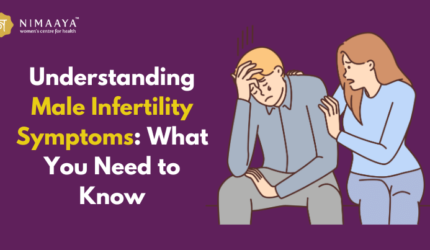
Comments 2
This blog has become my trusted companion in navigating the challenges of male infertility. Thank you for providing such informative and practical content!
This blog has become an invaluable resource for me in understanding and managing fertility concerns. Thank you for providing such insightful and valuable content!